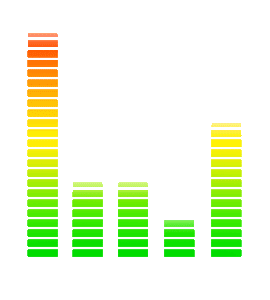Warning Signs of Diabetes Frequently Overlooked by Individuals
- Qabayan Radio
- Feb 13, 2024
- 2 min read

While the symptoms of diabetes can vary depending on the type of diabetes and individual factors, there are some common symptoms that are often overlooked or dismissed by people. These symptoms include:
Frequent urination: Excessive urination, particularly during the night, can be a sign of diabetes. The body tries to rid itself of excess glucose through urine, leading to increased urination.
Increased thirst: Excessive thirst (polydipsia) is often linked with frequent urination. As the body loses fluids through increased urination, it tries to compensate by increasing thirst.
Extreme hunger: Despite eating regularly, people with diabetes may experience persistent hunger (polyphagia) due to the body's inability to properly utilize glucose for energy.
Unexplained weight loss: Significant and unexplained weight loss can occur in individuals with diabetes, particularly in those with type 1 diabetes. This is due to the body breaking down muscle and fat for energy because it cannot use glucose properly.
Fatigue: Persistent fatigue and weakness can be symptoms of diabetes, as the body's cells are not receiving enough glucose for energy production.
Blurry vision: Fluctuations in blood sugar levels can cause temporary changes in vision, leading to blurred vision.
Slow-healing wounds: High blood sugar levels can affect the body's ability to heal properly, leading to slow healing of wounds and frequent infections.
Numbness or tingling in extremities: Over time, high blood sugar levels can damage nerves, leading to numbness, tingling, or pain, particularly in the hands and feet (diabetic neuropathy).
Recurrent infections: Diabetes can weaken the immune system, making individuals more susceptible to infections, such as urinary tract infections, yeast infections, and skin infections.
Darkened skin patches: Some people with diabetes may develop patches of darkened skin, particularly in areas where skin folds, such as the armpits and neck (acanthosis nigricans).
It's important to note that these symptoms can vary in severity and may not always indicate diabetes. However, if you experience any of these symptoms, especially if they persist or worsen over time, it's essential to consult a healthcare professional for proper evaluation and diagnosis. Early detection and management of diabetes can help prevent complications and improve overall health outcomes.




Комментарии